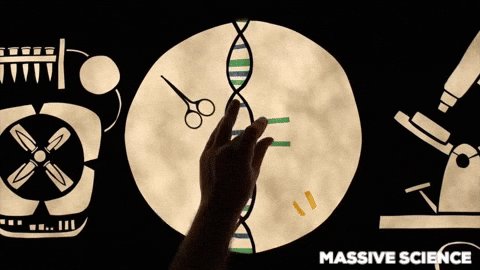
Title: Gene Engineering of Wild Plants and Animals: A New Era in Conservation? In recent years, gene editing technology has been making headlines with its potential to revolutionize various industries such as agriculture, medicine, and even entertainment. However, the use of this powerful tool is not without controversy, especially when it comes to manipulating the genes of wild plants and animals for conservation purposes. This week, a meeting of top environmental groups provided some insight into how these organizations are approaching this contentious issue. The International Union for Conservation of Nature (IUCN), which comprises over 1,400 members from around 160 countries, held a vote on whether scientists should be allowed to genetically modify wild plants and animals in order to aid in the preservation of animal species and other living organisms. The result was a tentative approval for further exploration into this field. While this decision does not represent an outright endorsement of gene editing technology, it could have significant implications moving forward. Researchers are already working on projects that involve changing some species’ DNA – such as genetically modifying mosquitoes to reduce the transmission of diseases like malaria and synthesizing horseshoe crab blood for use in drug development. Controversial efforts to “de-extinct” archaic creatures, like the so-called “dire wolf,” also fall under this umbrella. The potential implications of these developments are vast and varied. For instance, modifying organisms to help them adapt to a warming world is currently being explored as part of efforts to combat climate change. Other possibilities include testing new methods for suppressing disease or creating genetically modified crops that can withstand harsh environmental conditions. Despite the promise these advancements hold, there are still many ethical considerations at play when it comes to manipulating the genes of wild plants and animals. Susan Lieberman, vice president of international policy with the Wildlife Conservation Society, acknowledges this fact but remains optimistic about the potential benefits of such research. She believes that “maybe there are times when genetically modified organisms can be tested and cautiously and ethically introduced into the environment.” In conclusion, while the use of gene editing technology in conservation efforts is still a contentious issue, this week’s vote by the IUCN signals an openness to exploring these possibilities further. As we continue to grapple with pressing environmental challenges like climate change and disease transmission, it will be interesting to see how far scientists are willing – or able – to push the boundaries of what is possible through genetic modification. Only time will tell if this new era in conservation proves to be a blessing or a curse for our planet’s wild plants and animals.
Source: [Original Article](https://www.nbcnews.com/science/science-news/animals-genetic-engineering-iucn-conservation-groups-vote-yes-rcna235522)
#gene
Check out my AI projects on Hugging Face, join our community on Discord, and explore my services at GhostAI!

